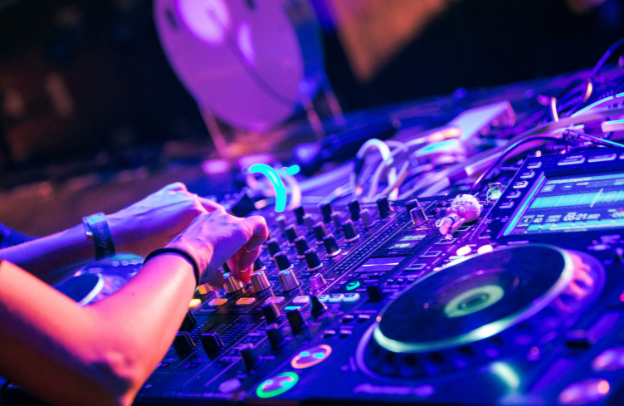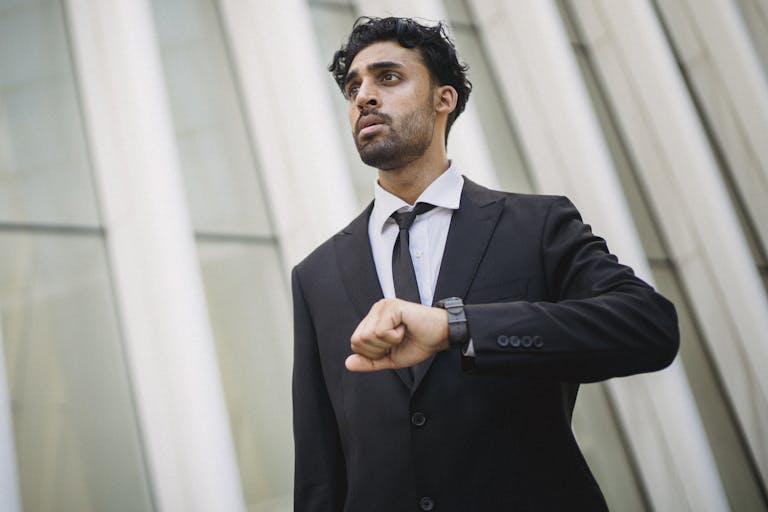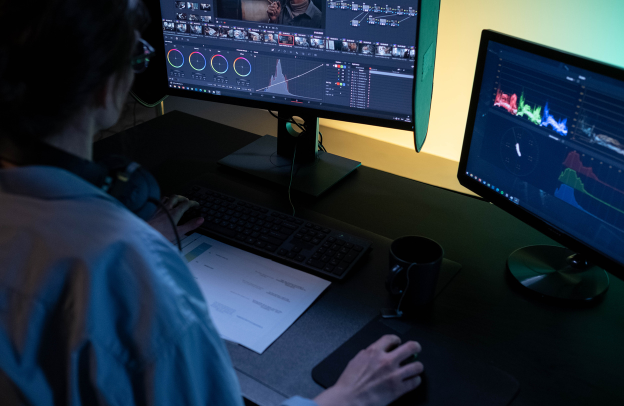TikTok and Universal Music Group Settle Royalty Dispute: Restoring Millions of Songs Amidst AI Concerns

The ever-evolving and dynamic music industry often finds itself at the forefront of legal battles and technological controversies. In the latest chapter of this ongoing battle, TikTok and Universal Music Group have reached a significant milestone in their challenging relationship.
Want to learn more about storytelling? Start by downloading the first chapter of The Storytelling Mastery.
After months of contentious negotiations and a bitter dispute over royalties, the two entertainment giants have finally settled their differences.
This resolution not only marks a pivotal moment for the companies involved but also has far-reaching implications for artists, users, and the future of music in the digital age.
The Settlement between TikTok and Universal Music Group
At the heart of the dispute is a disagreement over how much TikTok, the popular social media platform, was paying Universal Music Group for the use of its songs. This disagreement escalated to the point where Universal withdrew millions of songs from the platform, depriving users of access to tracks from some of the world’s most renowned artists, including Billie Eilish and Ariana Grande.
However, with the announcement of the settlement, TikTok users can now breathe a sigh of relief as these beloved songs are set to make a triumphant return.
In an email obtained by the BBC, Sir Lucian Grainge, the CEO of Universal Music Group, revealed the key changes in the new agreement.
“Under the new agreement, artist and songwriter compensation will be greater than under our prior TikTok deal,” he wrote. While specific details regarding the financial terms of the agreement remain undisclosed, the promise of improved remuneration signifies a significant victory for artists and their representatives.
Also, both TikTok and Universal Music Group have pledged to work expeditiously to restore Universal’s music to the platform, a process expected to take less than two weeks.
This includes reinstating the audio to videos that were previously muted during the dispute, ensuring that users can once again create and share content featuring their favorite tracks without interruption.
Implications for Artists and TikTok Users
For artists like Taylor Swift, perhaps Universal Music Group’s biggest star, the settlement represents a welcome resolution. Swift had already separately agreed to return her music to TikTok, leveraging her ownership of song copyrights to make a deal independent of the broader dispute.
Now, with Universal’s songs also set to return, artists and their representatives can look forward to a more equitable arrangement that fairly compensates them for their creative contributions.
Shou Zi Chew, head of TikTok, expressed his satisfaction with the settlement, emphasizing the importance of music in the platform’s ecosystem. “Music is an integral part of the TikTok ecosystem, and we are pleased to have found a path forward with Universal Music Group,” he remarked.
This sentiment underscores the crucial role that music plays in driving user engagement and fostering creativity on TikTok. It equally highlights the mutually beneficial relationship between the platform and the music industry.
The Role of AI and Industry Protection
However, amidst the celebration of the settlement, concerns lingered regarding the use of artificial intelligence (AI) in music creation and its potential impact on artists and their intellectual property rights.
See also Harnessing Artificial Intelligence for Advancement in Africa: An Expert’s Insight
This issue came to the forefront in 2023 when a viral TikTok trend featuring AI-generated music sparked controversy and raised questions about copyright infringement.
Universal Music Group swiftly intervened, citing violations of copyright law and advocating for greater protections against unauthorized AI-generated content. The settlement between TikTok and Universal not only resolves the royalty dispute but also addresses these pressing concerns.
Both parties have committed to implementing “industry-leading protections” to safeguard human artistry and combat the proliferation of AI-generated music on the platform.
In a joint statement, TikTok and Universal affirmed their dedication to protecting the integrity of musical creativity in the face of advancing technology. “We will work together to protect human artistry and remove unauthorized AI-generated music from the platform,” they declared.
This proactive approach reflects a recognition of the challenges posed by AI in the music industry and a commitment to ensuring that artists’ rights are upheld in the digital landscape.
Reactions and Future Outlook
Sir Lucian Grainge hailed the settlement as a significant victory for artists and a crucial step towards addressing the concerns raised by AI-generated content. “TikTok has now addressed the primary concern we expressed in our open letter that AI-generated content would massively dilute the royalty pool for human artists,” he asserted.
The agreement not only facilitates the return of Universal’s music to TikTok but also establishes a framework for responsible AI development and usage in the music industry.
Ole Obermann, TikTok’s head of music business development, equally echoed this sentiment, emphasizing the platform’s commitment to fostering a new era of musical creativity while safeguarding human creativity.
“We will work together to make sure that AI tools are developed responsibly to enable a new era of musical creativity and fan engagement while protecting human creativity,” he affirmed.
This collaborative effort between TikTok and Universal reflects a shared commitment to balancing technological innovation with ethical considerations in the pursuit of artistic expression.
However, despite the optimism surrounding the settlement, lingering concerns persist regarding the long-term implications of AI-generated music and the efficacy of the protections outlined in the agreement.
Artists such as Billie Eilish and Nicki Minaj have previously voiced their opposition to the development of AI tools that can replicate their musical styles without consent.
So, it remains to be seen whether the commitments made by TikTok and Universal will fully address these concerns and provide adequate safeguards for artists’ rights in the digital age.
Lesson for independent content creators and bigger players in the industry
The resolution of the dispute between TikTok and Universal Music Group underscores a critical lesson for independent content creators and larger players in the industry alike: the importance of advocating for and protecting creative autonomy and intellectual property rights.
See also Enny Okosun Talks About His Music And Pays Tribute To The Late Nigerian Musician, Sunny Okosun
Independent content creators must recognize the value of their work and assert their rights in negotiations with platforms and rights holders, ensuring fair compensation and recognition for their contributions.
On the other hand, industry giants like Universal Music Group must acknowledge the evolving landscape of digital media and embrace collaborative solutions that balance technological innovation with ethical considerations, safeguarding the integrity of artistic expression and fostering a more equitable ecosystem for all stakeholders involved.
This is a reminder that the interests of content creators, regardless of their size or influence, must be prioritized and protected in the ever-changing landscape of the entertainment industry.
Want to learn more about storytelling? Start by downloading the first chapter of The Storytelling Mastery.





